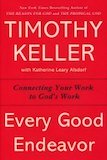Should I Treat the World Like Someone Running From Godzilla?

"...It is shameful even to mention what the disobedient do in secret. But everything exposed by the light becomes visible—and everything that is illuminated becomes a light. This is why it is said: "Wake up, sleeper, rise from the dead, and Christ will shine on you."
Ephesians 5:11-14
As Christians, we are "light in the Lord" and "children of light" (5:8). Yet we continue to live in a world of darkness, a world dominated by sin and "the powers of this dark world" (6:12; see also 2:1-3). What does it mean for us to be light in a dark world? How are we to live as children of the light when we are surrounded by darkness?
It is inviting for us, seeing the contrast between darkness and light, to try to separate ourselves completely from the darkness. We feel the lure of sin and sense that we no longer belong to its dark world (4:17-19; see also John 17:14-16). So, we may be tempted to seclude ourselves from all that is dark, to withdraw as much as possible from the world and its people so that we might keep our light pure.
The first imperative of Ephesians 5:11 appears to affirm this separation from darkness: "Have nothing to do with the fruitless deeds of darkness." If I am to "have nothing to do with" something, then I must back away from it completely, trying to put it out of my mind and doing nothing to engage with it. I'd be like those poor folks in Godzilla movies who try with all of their might to run away from the monster. They certainly want to have nothing to do with Godzilla.
But running away from the world as if it were Godzilla is not what Ephesians 5:11 actually encourages. The NIV rendering of this verse could be misleading. The verb translated as "have nothing to do with" is sunkoinoneo in Greek. It means "to participate in, to share in, to be partners with, to enjoy fellowship with." So, a better translation might be: "Take no part in" (ESV, NRSV), "Have no fellowship with" (KJV), or "Don't be partners with" (my paraphrase). In fact, we are not to have nothing whatsoever to do with the works of darkness, a truth that is affirmed by the very next phrase of verse 11: "but rather expose them." Exposing deeds of darkness requires having something to do with them, after all. If we are light, and if God has redeemed us from this dark world for his purposes, then we will have to deal with deeds of darkness and those who do them. But we must not become partners with either the deeds or the doers.
Thus, Ephesians 5:11 does not encourage us to run completely away from the dark world around us. Rather, it teaches us not to participate in dark deeds even though, in some way, we continue to engage with them and those who do them. This verse assumes that we will be in relationship with people who do what is wrong, even as it advises us not to become their partners in wrongdoing.
QUESTIONS FOR FURTHER REFLECTION: Are you ever tempted to withdraw completely from the world, with all of its mess, sin, and darkness? Do you think there are situations when complete withdrawal is wise, at least for a season? In what ways are you tempted to be a partner with "deeds of darkness"? What helps you to reject such a partnership?
PRAYER: Gracious God, God of Light, once again I thank you for making me a child of the light. Help me to know how I am to shine in a world of darkness. Keep me from withdrawing so far from the world that I cannot shine into it. At the same time, keep me from being so engaged with the world that I become a partner with deeds of darkness. Give me wisdom to know how I can live so as to reflect your light into the world without allowing the world to dim your light in me. Amen.
Rethinking Scarcity
We all know the pinch of limited resources. Whether it's a crunch for time, a shrinking bank account, or a competitive workplace, we often experience life dissatisfied and craving more. At The High Calling, we are Rethinking Scarcity, attempting to understand how both real and perceived scarcity influences our thoughts and behaviors. We also will explore scarcity’s influence in our decisions and how reimagining constraints not only changes the way we respond to our circumstances, but ultimately may change our circumstances themselves. Join us for the conversation!
Featured image above by martinak15. Used with Permission. Via Flickr.



 Do you find it challenging to be a Christian in a competitive workplace? Discover how to enjoy a successful career without sacrificing your soul! Encouraging you to hold firm to your faith in win-at-all-costs corporate environments, Tim Keller and Katherine Leary Alsdorf help you carry your beliefs from church to job, stay true to your values, make God-honoring choices, and more.
Do you find it challenging to be a Christian in a competitive workplace? Discover how to enjoy a successful career without sacrificing your soul! Encouraging you to hold firm to your faith in win-at-all-costs corporate environments, Tim Keller and Katherine Leary Alsdorf help you carry your beliefs from church to job, stay true to your values, make God-honoring choices, and more.